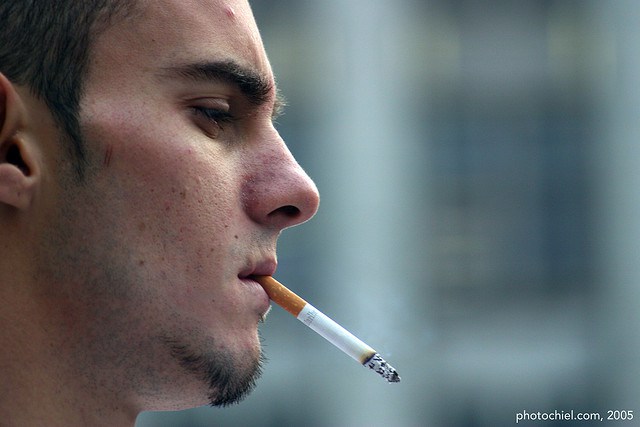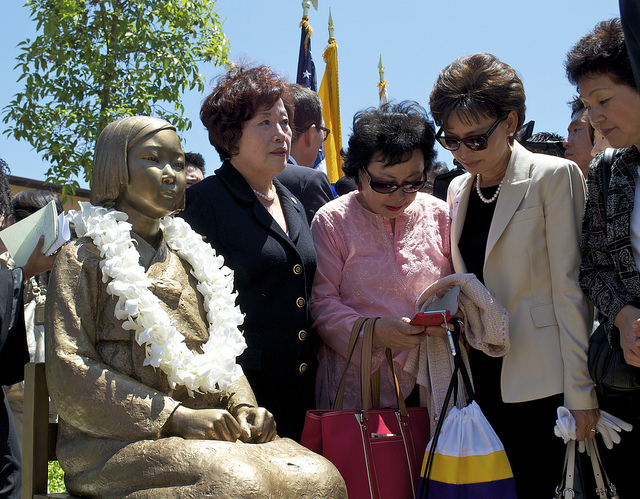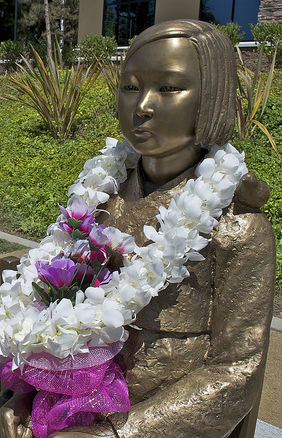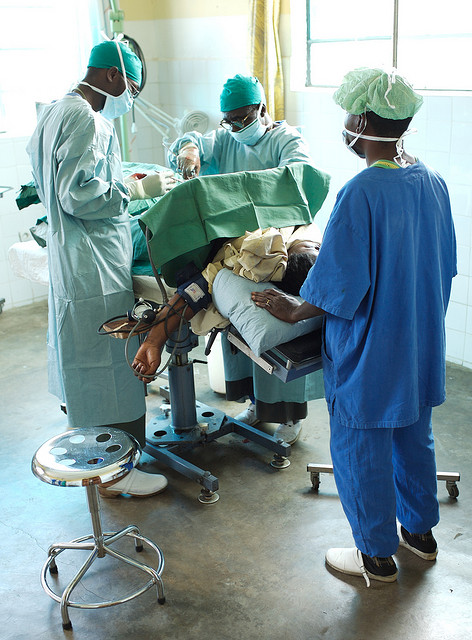MONTERO, Bolivia -- Antoinette Moncrieff, a spitfire of a girl from Michigan, works in an orphanage, or Hogar, in Bolivia with another American volunteer, Natalie Baker. Antoinette was drawn to work in Bolivia because of the opportunity to work in an orphanage and the tropical location.
As the oldest of four children and a second mom to the youngest siblings, kids have surrounded her all her life. She has been a nanny, baby-sitter, teacher’s aide, and has worked at a daycare and summer camp with homeless children.
What is your job in Bolivia?
My first eight months here, I worked in Santa Maria with the 0 – 5 year olds. I did homework with the kindergarteners, occasionally did activities with them, changed their diapers, bathed them, fed them, played with them, and disciplined them.
Now I help Hermana Paulita in the infirmary. I´m in charge of meds for both buildings, three times a day. I also file, take children to appointments, and take children to the doctor. Additionally, I sometimes take care of cuts and scrapes, burns, etc. and keep a note of who has what so that when Hermana Paulita comes in for the day she can have a look at them.
What is a day in the life like?
Honestly, that´s hard to say! Every day here is so different! Even in the nine months I've been here, my job responsibilities have switched around according to the need of the moment.
Typically, the average day here goes something like this:
5:00 am – The girls get up, get dressed, and do chores. (By default, I am awake too. It´s hard not to wake up when your bedroom is adjacent to a dorm of teenagers).☺
6:30 am – Breakfast bell, pray Hail Mary with the girls before entering, pass out food to our tables (we each have a table, mine is mainly full of middle school age girls) and I hand out meds to the girls.
7:15 am – The girls who go to school at Maria Auxiliadora, which is across town, leave on our microbus with Don Pancho, our handyman and driver. I am usually still chasing down girls who weren´t at breakfast to hand them out meds. The other girls who go to the public school next door leave on foot.
8:30 am– It really depends on the day. Sometimes I do paperwork; filing girls´ medical records, keeping track of their meds, etc. Sometimes I need to take care of boo-boos, take girls to appointments, or make unplanned trips to the doctor with sick children.
13:00 pm – Lunch bell. Sometimes Madre Rosario, our director, gives the girls a talk while they wait in line. I dish out food for my table and then hand out lunch meds to the girls in the dining room.
But this is relative. Often Natalie and I will have a cup of tea in the volunteer kitchen. Sometimes I get sucked in to taking care of someone´s boo-boos, which usually means that I end up taking care of ten people because if the girls get wind of the fact that I´m taking care of one person, they´ll all want me to take care of them. Sometimes I read or hang out in the library with Natalie and the homework girls.
How are you able to handle all of your responsibilities while keeping a healthy work/life balance?
Honestly, it´s difficult. Because there is no physical separation of work and home, and there are children around constantly, it is hard to keep a proper balance. The nature of your responsibilities also makes this difficult as well. I've found that it´s very important to take a bit of time out for yourself, indeed a necessity… Reading, journaling, art, taking a walk, taking naps, etc. have all helped me. When you´re feeling especially burnt out, taking a few days off is important too.
1 Next Page » 2 3 4
Published: 03 July 2014 (Page 2 of 4)
Has there been a defining moment in your life that made you decide to take the direction you did?
A typical day for me starts with morning mass at 6:45. Many of the students attend this mass as well. After mass I take attendance for the Daughters of Mary which is a Catholic group for young women dedicated to living more like Mary and growing in our faith as Christians. After that we have a quick breakfast and morning assembly. Monday, Wednesday and Friday I go with a VSDB sister to a village school that we are in charge of running and organizing.
We conduct assembly there, teach various subjects, get uniforms and other necessary things in order to get the new school on its feet. Those afternoons I teach art and religion at our base school. Tuesday and Thursday I start my day in the secondary school then teach the 5 aspirants we have English and Group Dynamics. The rest of the afternoon after lunch is spent in either art or religion and just being present in the school to assist with conflicts or difficulties that arise. Most afternoons I help a few students practice reading with small books we have here. I've wanted to do mission work since I was knee-high to a duck. I've always been interested in foreign countries and cultures, as well as poverty, human rights and social justice issues.
In college I sat through class and when I wasn't doodling or wishing I was doing something else with my life, I began to be aware of a desire deep inside to go to a foreign country and love the little children who had no one to love them.
It came to a head one fall day when I was supposed to be grocery shopping before work. Instead, I found myself walking through the woods in the park yelling at God.
“What do you want me to do?” I demanded of him.
In my mind´s eye I saw him laughing at me. He popped the question right back to me:
“What do you want to do?”
What were your thoughts about Bolivia before you arrived and how have they changed or stayed the same?
I think, coming from a first-world country that places a great deal of importance on child safety and development, as well as continuing education, I took it for granted that those I worked with would be of the same mindset. I found that this is not necessarily the case.
What are your hobbies and community involvement at your site?
Once a week, Natalie and I get to eat lunch with the nuns who run our orphanage at their convent. We also take part in the different celebrations at the Hogar. Bolivia has so many celebrations. Often we join the other staff members in putting on a dance.
We've also put on Dia de La Bruja (Halloween), Christmas, Easter, and Mother´s Day celebrations. The staff take turns putting on one major celebration every year; this year our turn was Mother´s Day.
Natalie and I enjoy making cups of tea, hanging out in the Plaza, and watching movies too. Personally, I enjoy reading, writing, journaling, drawing, painting, photography, dancing, and petting my cat. ☺
What are the hardest parts about living there?
I think one of the hardest parts about the Hogar is that there´s just kids around all the time. The noise is constant. You really can´t walk anywhere without running into someone. Even when you try to go somewhere for a little space, like the volunteer kitchen (which ends up feeling like a giant fishbowl) they often find you and spy on you, bang on the windows, etc. Someone´s always yelling, talking or laughing really loud, crying, etc. Even taking showers, going to the bathroom, etc. don´t always have the luxury of privacy. I have had numerous conversations through the shower door. ☺
Food has been interesting. The government only gives eight bolivianos a day (less then $1.50 U.S.) to the Hogar for each child for ALL of her needs. (By the way, this is the same amount that the prisons get.) Food is often very limited and almost always unappetizing. When there´s food we eat and when there´s not we don´t. While there´s always something to eat, there´s usually not enough and what there isn't very nutritious.
We eat a lot of donated things. It´s not unusual for us to eat a small baggie of outdated cookies leftover from the school snack for breakfast or dinner. Once we went through a whole week where the main meal, lunch, was only a bowl of soup. Feeling hungry is often just something you suck up and deal with.
1 2 Next Page » 3 4
Published: 03 July 2014 (Page 3 of 4)
Do you ever feel unsafe?
Sometimes. Going anywhere at night is often kind of scary and it gets dark really early here because we´re closer to the equator. Our neighborhood is kind of bad and an especial target for robbers because the market´s right there and people always have money on them. Two months in Natalie and I were robbed at gunpoint and her purse was stolen. That was scary but we learned from it and came out okay in the end. Most of the time we´re pretty safe though. The key is to go out during the day.
What is the most rewarding part about living there?
Knowing that you´re making a difference in the lives of the kids. Seeing the small changes in them, as they grow, heal and learn is priceless. I've had the opportunity to build positive relationships with many of the children over the nine and a half months I´ve been here. Every once in a while it blows my mind that I can positively interact with a kid I never thought I would. What is your best memory so far?
I have so many good ones that it´s hard to choose one! Getting electrocuted by the showers, the day Melani learned to walk, Sandra and Natalie getting stuck up in a tree, Yudid and Emily dancing around in gigantic costume feet, getting my hair tangled up in the wheel of a cart during an impromptu race with a bunch of middle school girls, finding my boyfriend sopping wet during a water balloon war with a bunch of teenage girls and then bringing him to the personnel meeting where he left a gigantic puddle on the floor… There´s so many! ☺
What is the most heartwarming experience you’ve had and the most heartbreaking?
I've had a lot of heartwarming experiences and a lot of heartbreaking ones. Hearing Leidy tell me she wanted to die, the kids not having enough food, having Etcel spill into my lap crying telling me her dad told her she has to stay here always, holding screaming Nataly during her transition into Santa Maria, the day Deimar's adoptive family returned him and seeing how changed he was as a result… those are some of the heartbreaking ones.
Getting peppered in hugs and kisses by Santa Maria, watching Paz turn from a smelly scabies-infested street animal into a loving pregnant kitty, watching Silvana go from a depressed and sick little girl to a smiling joyful girl who can use a pencil and count to ten consecutively, getting a picture from Emily on a really rough day, getting called “Mama,” how excited Francisca was about reading “Bread and Jam for Frances”, Belen's cute secret hand waves as she walks down the hallway. Those are definitely the heartwarming ones and they make it all worth it.
Can you tell me about one child that you feel you’ve impacted or about one child who has impacted you?
I think Silvana was the guiding thread through my first several months of being here at the Hogar. When I first came here she was eight years old but living with the 0 -5 year olds in Santa Maria. She was very sad, withdrawn, depressed and sick. In my first few days of working in Santa Maria, I got Silvana to smile. Gradually she came out of her shell.
In January she started kindergarten. She had difficulty doing simple pencil tracing exercises and the concept of colors was completely lost on her. I talked to our psychologist and social worker and learned that Silvana grew up in the country wandering the streets with her schizophrenic mother.
When she first came to the Hogar, Silvana could not use the bathroom by herself. She just sat and did not interact with anyone. In the year-to-year and a half since then, Silvana has come such a long way. The psychologist felt that Silvana was capable of learning but because of poor nutrition she would come about it in her own timetable and not when we expected her to. He thought being in Santa Maria was the best medicine for her because the children would talk to her; she would learn from her peers.
I kept working with Silvana. Slowly but surely she got the hang of using a pencil. She was able to do all of her homework, even making letters of the alphabet. She even named a color once without my asking her to. She needed constant affirmation but was very pleased with herself as she made progress. I remember the day she counted her numbers and actually started with one instead of two. I was so excited!
She is such a different little girl then she was nine and a half months ago. She laughs and talks with the other kids, smiles and climbs all over the playground. I am so happy she's come so far.
What lessons will you take with you?
I've learned how strong I really am. I´ve learned a number of different nursing skills and life skills that I definitely didn't know when I came down here. I also learned that I can go months on end without seeing my boyfriend and have our relationship come out stronger for it.
Do you find that women are treated differently than men at your site?
Yes and no. We don´t have the same gender inequalities and difficulties that many other third-world countries do, but men and women have very different roles in Bolivia. There are a lot more clear distinctions between what men and women do then there are back home. If a little boy wants to play with a doll, they are very adamant that “that's women's stuff” and scold him. Traditionally anything to do with tools, appliances, building, etc. falls under the male's role. I don't really agree with it.
1 2 3 Next Page » 4
Published: 03 July 2014 (Page 4 of 4)
What are the most critical problems faced by people in your area?
Poverty and a lack of education. Poverty and ignorance breed each other. Knowledge of child development is often nonexistent. Knowledge that we often take for granted in the United States is not common knowledge here. People have hugely unrealistic developmental expectations of children and thinking outside the box or innovatively or in a problem-solving way is not really done here.
In my particular neighborhood, families are very broken. Many parents are not married. It is not unusual for a father or mother to go off to another country and leave the rest of the family. People tend to have the attitude that orphanages can raise their children; sort of like free daycare until the child is old enough to be useful to the family. Once one of our English volunteers was approached by a single mother who looked to be fairly well-off. She wanted to know if the Hogar could take her children.
Do you ever feel like you really belong in Bolivia at the Hogar?
Yes and no. I think the very nature of the Hogar makes it feel difficult to feel fully part of what´s going on. But I feel like I belong in the sense that I am where I am supposed to be, and I've become part of life here and part of the girls´ lives as well, even for the short time I´m here.
What is the most interesting or surprising thing you’ve observed or been a part of?
Being a part of the outdoor Stations of the Cross that happen in the streets of Montero during Lent has definitely been one of the most interesting things I´ve been part of.
As for surprising… Life at the Hogar is often a surprise. You never know when you´ll be entertaining a group of American visitors, finding a live bat in the library, going to the dairy farm with Santa Maria, having a party, or watching the tortoise trying to get out of the corner next to the computer like I´m doing right now. ☺
What are your hopes for the people you’ve interacted with?
I hope each one of my children goes on to lead a long, happy, and productive life. I hope they make a better life for themselves then the life they were born into, make positive choices and that they find love and healing. I wish I was around to see the kind of people they grow up to be.
What are your plans once you’ve finished at your site?
I'm going to return to Ypsilanti, Michigan. I've got a job waiting for me at home, working with 5-10 year olds as an after-school program leader. I´m also hoping to train as a volunteer Doula working with mothers who have just given birth.
What do you plan to have accomplished in five, 10, 20, and 50-years personally and professionally?
I don't have a time limit for anything. Life takes many strange twists and turns and it's silly to put a time frame on things. I can tell you what I would like to have happen, though. I would like to become a midwife and herbalist.
I would like to get married and have a ton of kids, do foster care and adopt. I would like to be an urban farmer and continue drawing, taking photos, writing, dancing, painting, and non-conventional learning. I'm hoping to spend my life invested in the lives of my family members, friends, and the community around me. And I hope to continue doing mission work in the future.
Anything else you would like to add?
If you've ever thought about doing overseas mission or volunteer work… seriously. DO IT! It's so worth it in the end. You will be so much better for it, and you will have made a positive impact on someone else's life.
Return to Page 1 »
Follow Olivia on Twitter Twitter: @nahmias_report Asia Correspondent: @OCELswick
Related articles






































